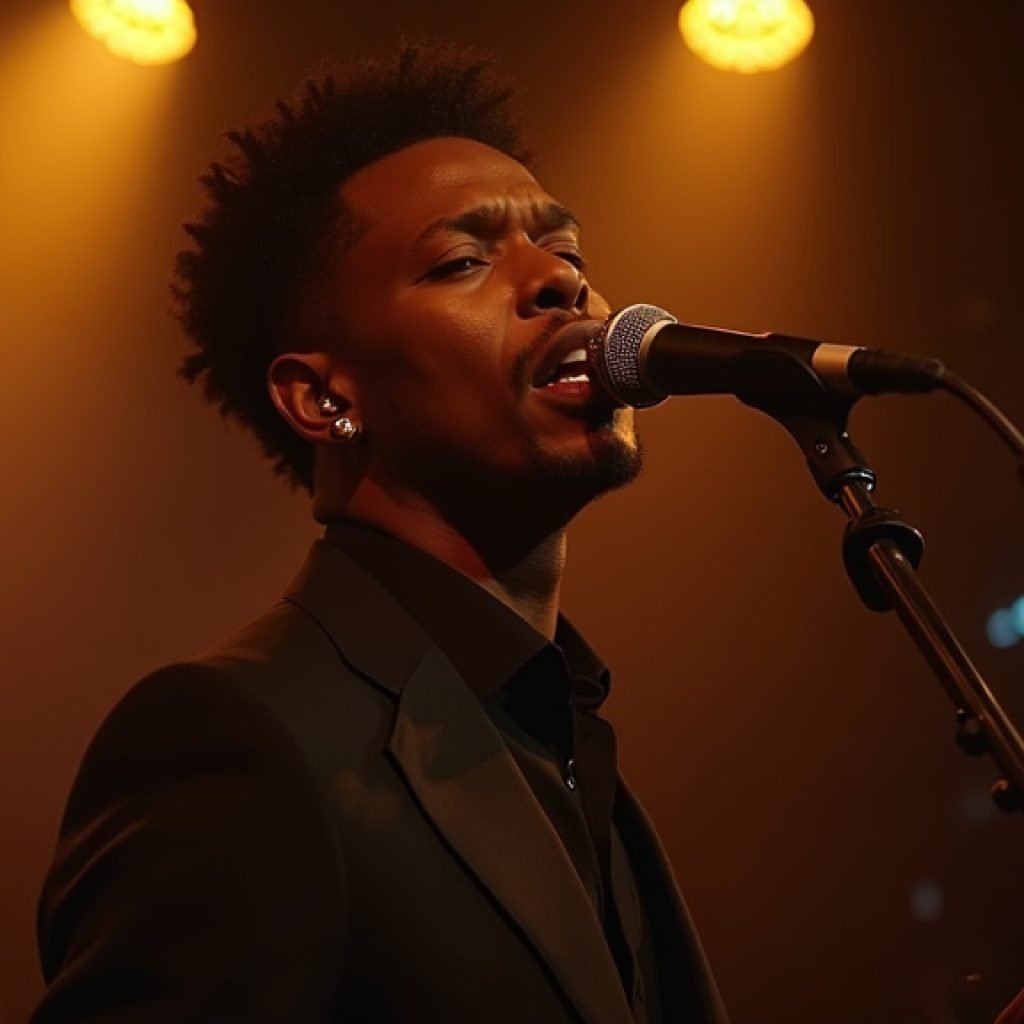Billy Woods, a consistently acclaimed figure in the underground hip-hop landscape, has once again delivered a work of profound depth and disquieting beauty with his latest album, “GOLLIWOG.” Released on May 9, 2025, through Backwoodz Studioz, this album solidifies Woods’ reputation as a master lyricist and a fearless explorer of complex themes. “GOLLIWOG” is being widely heralded as a magnum opus, a stark and unflinching examination of post-colonial oppression, inherited trauma, and the enduring human spirit in the face of systemic brutality.
This latest offering sees Woods diving headfirst into a sonic and lyrical universe that is both harrowing and intellectually stimulating. Critics have lauded the album for its ambitious scope, its intricate soundscapes, and its raw, emotional honesty. It’s a collection that demands attention, rewarding listeners who are willing to engage with its dense narratives and challenging subject matter.
Thematic Depths: Colonialism, Trauma, and Resilience
At its core, “GOLLIWOG” is a deeply political album, but one that never sacrifices its personal resonance. Billy Woods masterfully blends trenchant political critique with intimate reflections on trauma, creating a visceral exploration of post-colonialism and its lasting psychic residue. The album confronts the historical atrocities, racism, dehumanization, and genocide that continue to shape the modern world, but crucially, it also delves into the personal impact of these grander societal failings.
As one review noted, Woods doesn’t just create a narrative about history; he immerses the listener in its emotional weight, making “GOLLIWOG” a haunting meditation on survival, loss, and resistance. The album grapples with concepts like African zombies, time-traveling trap cars, and the existential dread of a world seemingly poised on the brink of collapse, all filtered through Woods’ unique perspective. He explores what it truly means to feel dread, touching upon state-sanctioned violence, the legacy of figures like Cecil Rhodes, contemporary global conflicts, and the quiet horrors of domestic abuse and poverty. Each track functions as a chapter in a larger, unsettling story about the interwoven threads of history, trauma, and resilience.
A Sonic Tapestry of Horror and Innovation
The production on “GOLLIWOG” is as varied and compelling as its lyrical content. Featuring a “murderer’s row” of producers, including The Alchemist, El-P, Conductor Williams, and Kenny Segal, the album weaves a cinematic tapestry that blends horror, humor, and surrealism. The sonic landscape is frequently described as having the ambiance of a horror movie, with dissonant strings, sampled agonized screams, and ominous drones creating an atmosphere of unsettling unease.
This experimental approach to production complements Woods’ distinctive delivery, which has been described as a slurring, drunk-walking-home-in-a-storm style, yet always precise and commanding. Tracks like “Jumpscare” set an ominous tone from the outset, while songs such as “Waterproof Mascara” delve into extreme darkness, sampling sobbing sounds to underscore lyrics about domestic violence. Conversely, moments of unexpected beauty emerge, such as the saxophone solo that elevates “Maquiladoras” or the soulful vocal contributions from Yolanda Watson on tracks like “A Doll Fulla Pins,” which is highlighted as a standout and one of Woods’ finest moments to date. The album’s diversity in producers, from the jazz-inflected beats of Kenny Segal to the avant-garde soundscapes of Preservation, ensures a rich and unpredictable listening experience.
Lyrical Prowess and Critical Acclaim
Billy Woods’ lyricism is, as ever, a central pillar of “GOLLIWOG.” His ability to balance the personal and the political, blending his own experiences with collective suffering, is a hallmark of his artistry. He crafts narratives that cut through the noise of contemporary music, offering searing, personal reflections on the legacies of colonialism and the ongoing struggles for identity and autonomy. His writing is dense and often requires deep analysis, yet he also possesses a remarkable skill for directness, delivering lines that land with devastating impact.
The critical reception for “GOLLIWOG” has been overwhelmingly positive, with many reviewers identifying it as a masterpiece and a career highlight. Publications have praised its “humanistic and erudite whorl of meaning,” calling it “the best rapper around putting out the best rap album of the year.” The album’s unflinching gaze into discomfort and abuse, spanning racial, gender-based, domestic, and colonial forms of oppression, has been particularly noted. Despite the often bleak subject matter, Woods’ work is consistently praised for its artistic integrity and its ability to provoke thought and emotional response. “GOLLIWOG” is not merely an album; it is an artistic statement, a profound commentary on the human condition, and a testament to Billy Woods’ enduring power in the hip-hop world.
Thematically, the album also revisits and recontextualizes the titular “golliwog” caricature, a racial effigy that serves as a lens through which to understand the deep emotional cost of colonialism. Woods dissects the grotesque imagery and stereotypes associated with the figure, revealing it as a symbol of anti-blackness and a reflection of cultural trauma. This careful and critical engagement with loaded imagery underscores the album’s commitment to deconstructing oppressive narratives.
In its entirety, “GOLLIWOG” stands as a monumental achievement in modern hip-hop. It is a work that is both challenging and immensely rewarding, cementing Billy Woods’ position as one of the most vital and compelling artists of our time. Its fusion of harrowing lyrical content, innovative production, and unflinching social commentary makes it an essential listen for anyone seeking music that provokes, unsettles, and ultimately, endures.

























